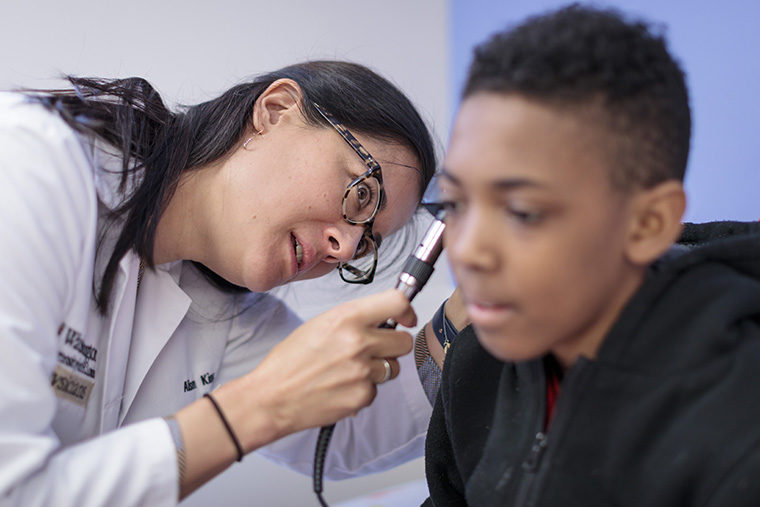To a young Allison King, Washington University School of Medicine served as one of the best playgrounds in St. Louis.
As a preschooler, she hid underneath benches in the renal lab where her mother worked. In grade school, she spent summer days creating red, yellow and blue plastic tube people from a waxy laboratory staple used to seal flasks and other containers. As she got older, she helped exercise the lab rats to see if movement improved kidney function (it did). She even had a favorite rat, Picasso, named because the rodent’s partially eaten food resembled the artist’s sculptures.
“I grew up at Washington University,” said King, MD, PhD, now an associate professor of occupational therapy, of pediatrics and of medicine, and a leading national expert on sickle cell disease in children and young adults. “My mom worked in a renal lab since before I was born. I’d spend many summer days on campus, making myself busy and having fun.”
Her life always has revolved around Washington University. Not only does King work on the Medical Campus, she can see the impressive Danforth Campus from her kitchen window in a house she shares with her 7-year-old twins and her husband, John F. DiPersio, MD, PhD, the Virginia E. and Sam J. Golman Professor of Medicine in Oncology and deputy director of Siteman Cancer Center at Barnes-Jewish Hospital and Washington University School of Medicine.
King contributes to the university’s impressiveness through her nationally recognized research in sickle cell disease, as well as the protocols she has helped implement to improve clinical care for the incurable disease, which affects 100,000 people in the U.S., primarily African-Americans.
Last year, King received a six-year, $4.3 million grant from the National Institutes of Health (NIH) to help improve health care for teens and adults with sickle cell disease. The condition encompasses a group of inherited red blood cell disorders resulting from abnormal hemoglobin, a protein that delivers oxygen in the body. The disease causes typically round red blood cells to become crescent-shaped, or sickled, and leads to chronic pain and fatigue, organ damage and shortened life spans.
The funding — part of a larger effort spearheaded by the National Heart, Lung, and Blood Institute (NHLBI) of the NIH — is the first of its kind focused on young adult patients.
“Research on teens and adults with sickle cell disease is limited,” said King, who also is an associate professor of surgery and a medical director of survivorship at Siteman Cancer Center. “Transitioning patients from pediatric to adult health care is one of the most challenging barriers to overcome with this disease.”
